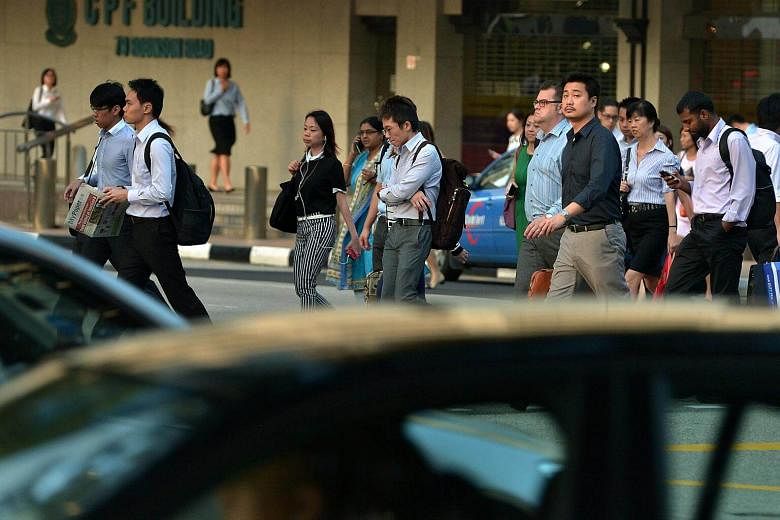SINGAPORE - For about the same price as a premium Spotify music subscription - less than $10 a month - workers will be be able to attend bite-sized workshops and networking events under a new subscription scheme by the labour movement.
Announced on Friday (Nov 10) by National Trades Union Congress (NTUC) secretary-general Chan Chun Sing, the U Future Leaders Exchange (UFLX) offers users unlimited access to more than 60 workshops over a year, ranging from data science to public speaking.
The fee is $100 to use the service for a year, while NTUC members pay $30 for a year.
The aim is to make it easier for workers to prepare themselves for the many career transitions they will make in their lifetimes, Mr Chan told reporters after a dialogue with about 1,200 professionals at a conference.
He said the dialogue participants at Suntec Singapore Convention and Exhibition Centre had brought up a lack of time, lack of money and the need for a mindset change as three top challenges they face in preparing themselves.
It is difficult for working adults to take time off from family and job commitments to go for courses, he noted, Also, very few people will be able to invest a large amount in taking courses where the employment or earning outcomes are not certain.
"We are looking at how (we can) compress relevant modules into bite-sized formats, delivered to workers just-in-time, rather than to have them going out for a prolonged course and take them away from their jobs in a prolonged manner. How (we can) drastically reduce the cost of them gaining knowledge," said Mr Chan.
NTUC said it aims to have 10,000 workers on board the scheme by the end of 2018.
Since the launch of the pilot run in March this year, 200 paid subscribers have signed up, while about 1,000 people have signed up on a three-month trial basis, which is free.
About four workshops are held each month, for about two hours in the evening, with online content being developed as well.
Some of the 50 or so events held under UFLX so far include a conference for educators organised by the Singapore Teachers' Union and a learning journey to Intel's Digital Hub for Asia Pacific and Japan organised by the Port Officers' Union. Tech firms and multinational corporations like Microsoft and Procter and Gamble are also offering access to their innovation labs.
NTUC assistant-director general Vivek Kumar, who heads the U Future Leaders unit, said the bite-sized workshops and networking sessions can help workers understand emerging trends and requirements in their own or other industries. They can then decide whether to go for further courses in a new area to deepen their skills.
The UFLX workshops and events are categorised under four tracks - first, innovation exchange, which NTUC started last year to inspire working people think out of the box.
The three new tracks are ideas exchange, which includes workshops on "intrapreneurship" - referring to the act of behaving like an entrepreneur while working in a large organisation - and working in a virtual environment; growth exchange, which includes personal branding and managing personal finances; and entrepreneurial exchange, which includes digital marketing and project planning and management.
Software manager Chan Ching Huat, 44, who has signed up for UFLX and attended more than 10 events since April, said he wants to gain knowledge from other industries and build up his network.
The sessions he attended include entrepreneurship and change management.
"In this era there's no one fixed field you'll be working in. You'll be moving along as technology changes, so it's important to expose yourself to different things," he said.
Inland Revenue Authority of Singapore Staff Union general secretary Mabel Low, 44, said union leaders like her are looking out for workshops relevant to their members. Her union has about 1,100 members.
The senior tax officer said these members are mostly PMETs (professionals, managers, executives and technicians) and looking for courses related to the digital economy. "People know the changes are there and want to explore the area," she added.


